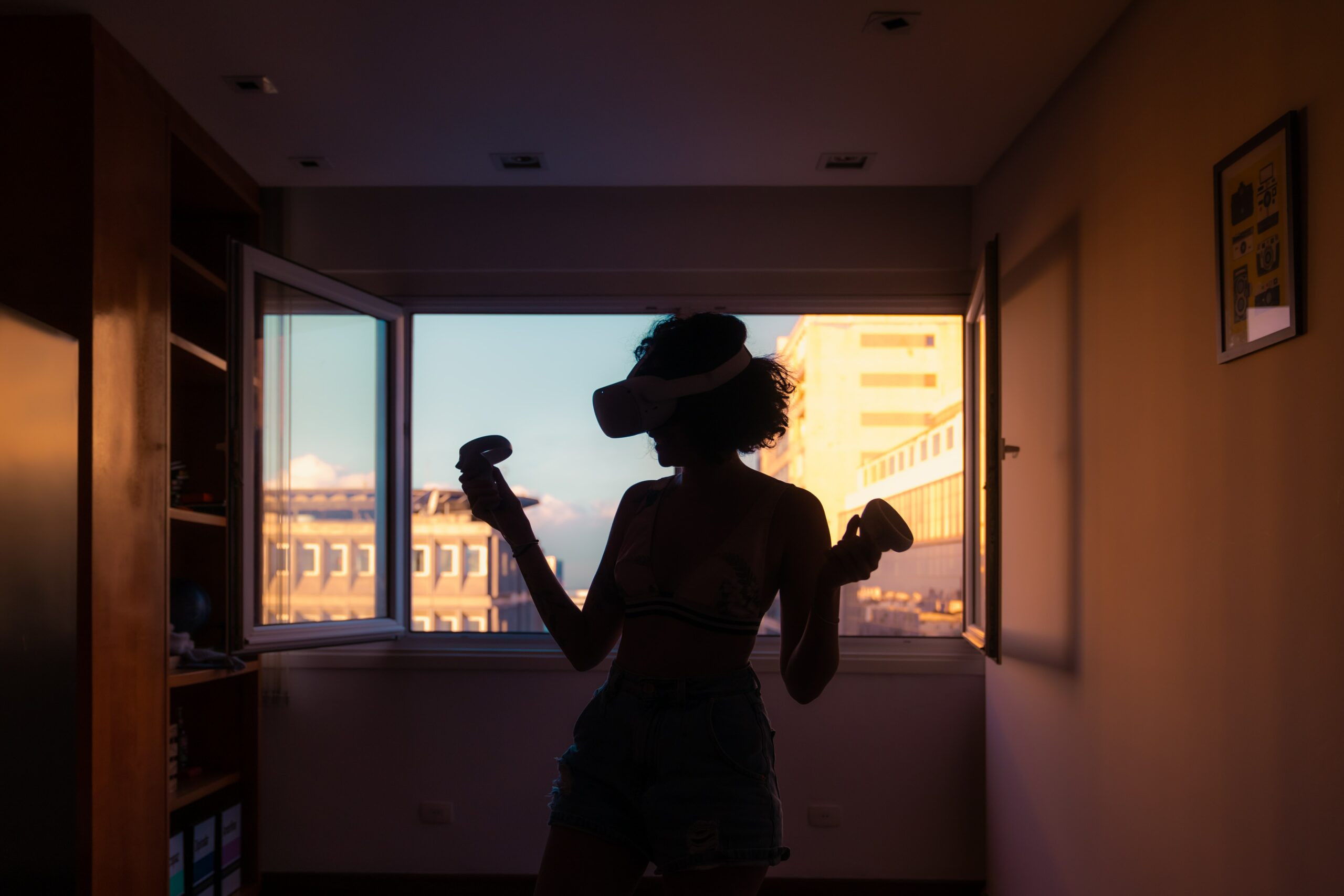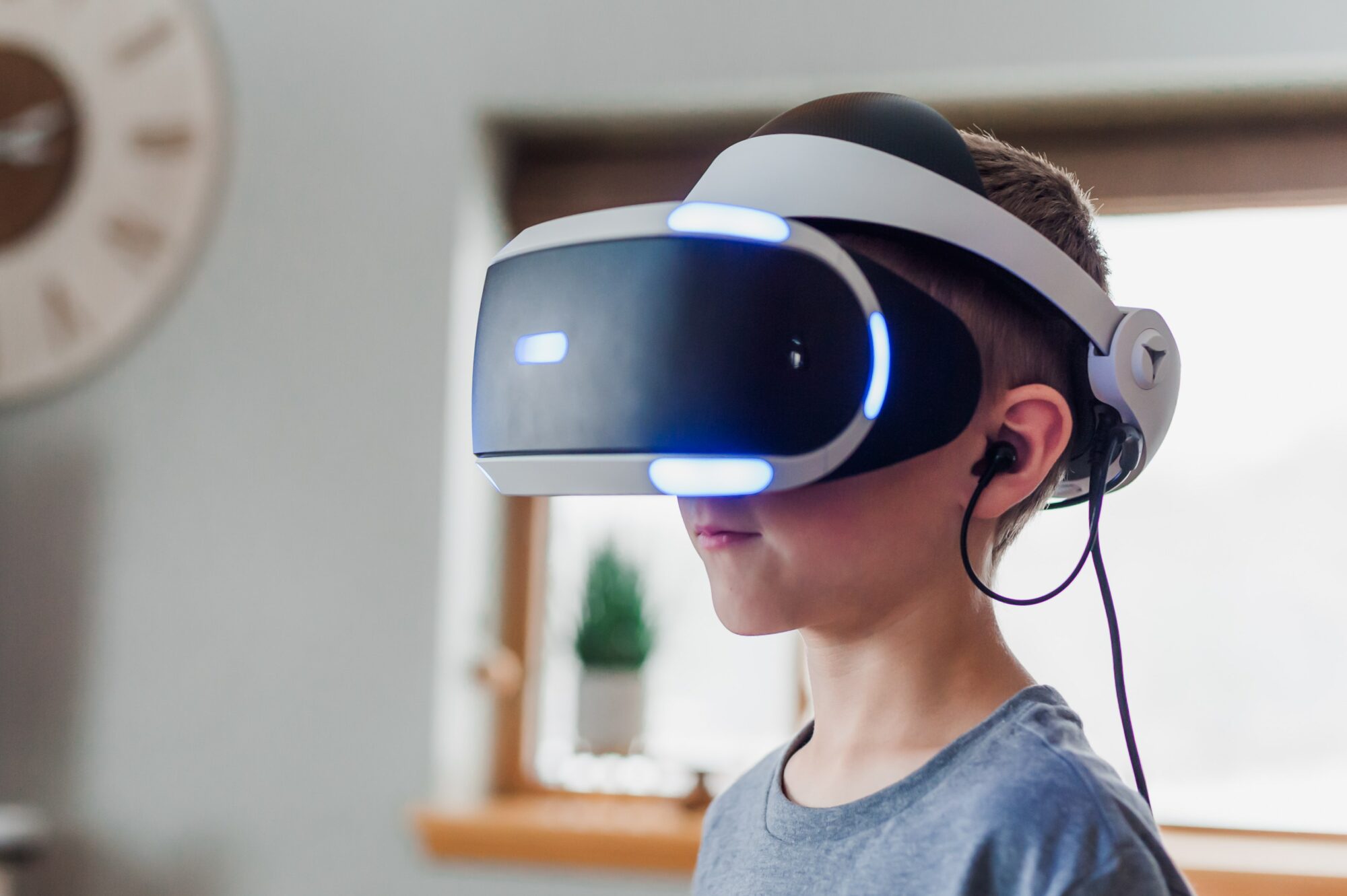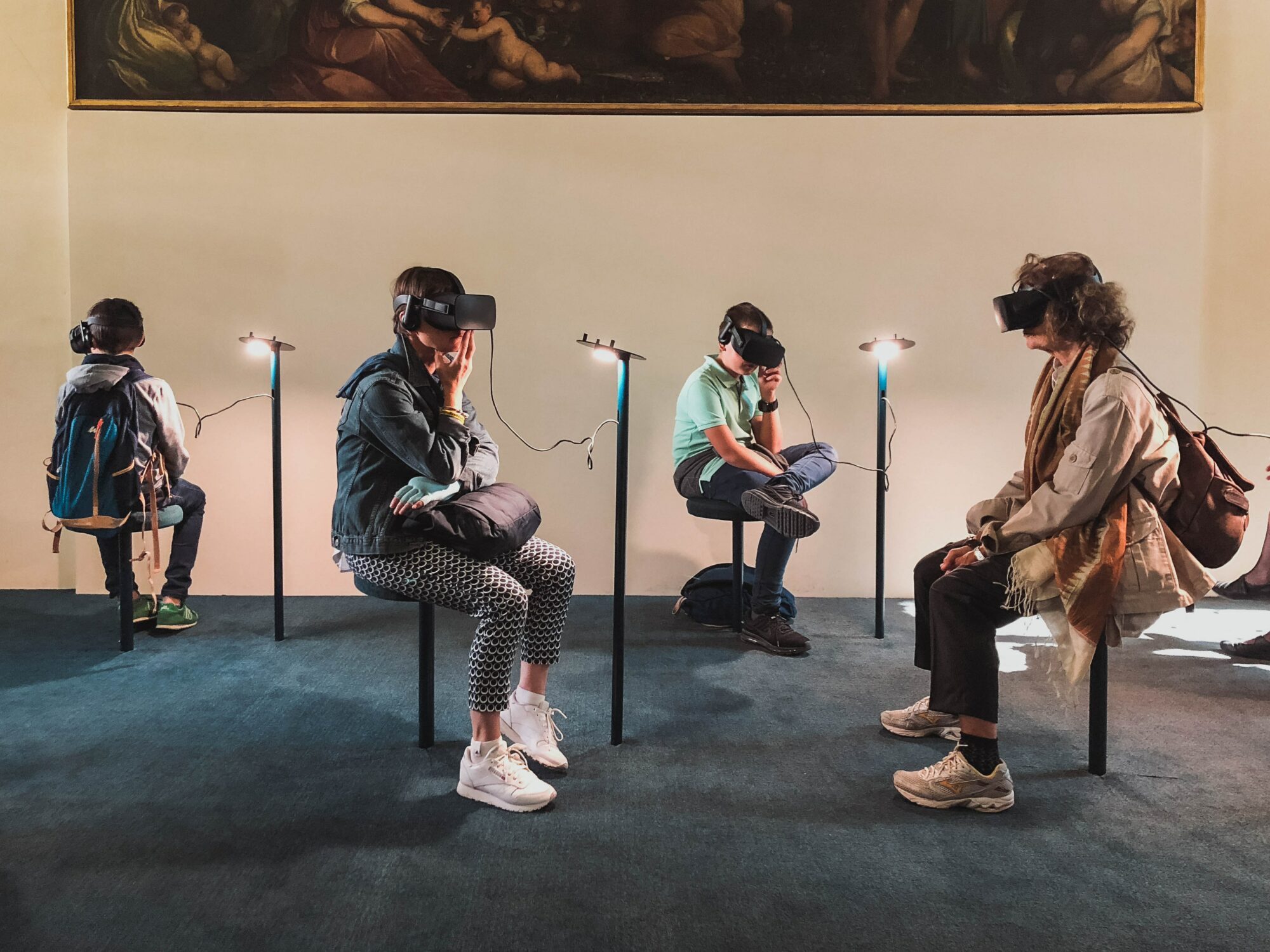Metaverse: The End of Travel as We Know It
January 25, 2022
Jeremy Wells
For years I’ve enjoyed watching futuristic movies like TRON, Matrix, Minority Report, Avatar, Ready Player One, and the likes. The technology in these films always seemed so far-fetched and in the distant future. While the concept of living in a simulation or using augmented reality made for good entertainment, I never really considered that it would become reality in my lifetime — pun intended.
As the technology surrounding virtual reality (VR), augmented reality (AR), and the Metaverse have come further into the spotlight, receiving widespread adoption and support from large companies like Meta, Apple, Google, and Microsoft – it’s apparent that it’s here to stay. Depending on who you are, these technological advancements may excite you or terrify you, but it’s happening all the same.
This technology has already begun revolutionizing industries like healthcare, education, and others. Likewise, there is a target on the back of the travel and tourism industry. Can the Metaverse change travel as we know it? If so, for the better? Or for the worse?

The Death of Travel?
The reality is until the Metaverse or other VR technology achieves “Matrix”-level sophistication, in which an individual can experience all five senses while being “plugged in” to a virtual world, it will not and cannot completely replace travel. However, money is being poured into the development of this technology and will continue for the foreseeable future.
Industries like healthcare, automotive, education, and many others are already being disrupted with the continued growth of virtual reality and the metaverse. This led me to ask the question: What does all of this mean for the future of travel, tourism, and hospitality? To what degree will it alter how people choose to travel? How should we respond?
The travel, tourism, and hospitality industries must continue to adapt and evolve alongside the Metaverse. We must find innovative ways to leverage the Metaverse and virtual reality, in order to avoid being left in the dust of rapid change.
Metaverse will end travel as we know it, but this isn’t necessarily a bad thing.
This article will scratch the surface of this topic, but please share your thoughts with me as well. I’m still very much learning about the possibilities of how this technology can be utilized. Shoot me an email: jeremy@longitudebranding.com

What is Metaverse?
The age of the metaverse has arrived. But what exactly is the “Metaverse”?
While virtual reality is well-defined, Metaverse is still a bit ambiguous. The “Metaverse” isn’t just Facebook’s intellectual property either. In fact, recently Facebook has made statements that further describe how they see themselves as building only a piece of the metaverse instead of the “metaverse” in its entirety.
The metaverse is a new type of shared space for social interaction, one that combines the real and the virtual into an expansive, immersive environment. In a metaverse, you can travel to other planets or to other countries or even visit an underwater city. You can meet and interact with people who aren’t physically present on Earth.
Traveling through a metaverse will be like traveling through the Internet, except that the 2D screen in your hand is replaced by a 3D headset that transports you into a different world—and all without needing to leave your home.
New technologies are emerging that will make this possible. The Web is already generating massive amounts of data; virtual reality headsets like Oculus Rift are allowing us to experience that information as it unfolds around us, and facial recognition software will allow us to identify and interact with other avatars.
Metaverse may completely change our relationship with travel
The ability to teleport anywhere on the planet at any time, instantly experiencing everything first-hand and in real-time, will completely change our relationship with travel. Imagine never again having to wait for a connecting flight or worry about missing the tour bus because you have another appointment across town.
What is Virtual Reality (VR)?
Virtual reality is an artificial environment that simulates a physical presence in places in the real world or even imaginary worlds.
What is Augmented Reality (AR)?
Augmented reality is a computer-generated sensory experience that combines what you see, hear, touch, taste, and smell with the real world.

How Metaverse Will Impact Travel
Real-world applications for virtual reality are no more a distant dream. In fact, it’s been around for quite some time. Yet, there is still plenty of opportunity for innovation and disruption in the travel and tourism industry.
Real-world applications for virtual reality are no more a distant dream.
Traveling has always been one of life’s greatest joys and learning about new cultures and places are enriching. But the enjoyment of traveling is often marred by the exorbitant costs involved. Moreover, with the ever-increasing population, environmental degradation, and rising threat of global terrorism, tourism has become a target for various criticisms.
The Metaverse offers an opportunity to change all of this. For one thing, it will be able to offer a more authentic travel experience to people who might otherwise never get to see certain places or meet certain people. It will allow users to interact with each other through avatars which they can customize as they please. This could eventually make virtual experiences just as meaningful and memorable as anything we might experience in reality.
On top of that, the Metaverse will be able to facilitate collaboration among like-minded individuals and communities on a global scale that could then go on to create real-world impact through joint initiatives and projects.
The Positive Impact on Travel
When it comes to the future of travel, there’s a lot of hype surrounding virtual reality (VR) and the metaverse. Here are just a few possibilities for how VR and the Metaverse could positively impact the future of hospitality, travel, and tourism.
Travel Planning in the Metaverse
In the future, it wouldn’t be surprising to see a virtual reality headset bundled into many travel packages. Think about it — if you can see the destination and experience it firsthand before you even book your trip, you might be more likely to go through with it. And that’s good news for travel companies, both large and small.
Virtual reality can also help travelers who are less inclined to go out of their comfort zones. If you’ve ever been to a foreign country and felt unsafe or uncomfortable, virtual reality could help you get over those fears. If you’re traveling somewhere for work but don’t like the accommodations, a VR tour could help you decide whether or not it’s worth staying at that hotel.
Virtual Bookings and Sales
Booking a vacation or flight is an incredibly stressful experience at the best of times, but add to that an agent that can’t hear you, doesn’t answer questions and hangs up mid-conversation, and you start getting the picture of how frustrating things can get.
Virtual reality could give customers a chance to “try before they buy” and give them a better idea of what they are going to get.
Virtual reality could be a solution to this problem. At present, we are seeing hotels and airlines launching tours around their resorts and cabins using VR apps. This gives customers a chance to “try before they buy” and gives them a better idea of what they are going to get.
The possibilities are endless and exciting. With any luck, VR will be used by travel companies as an educational tool, and as a way to set themselves apart from the competition.
Customer Service Improvements
The Metaverse is an opportunity for you to further your brand’s reputation. There are countless ways in which companies, employees, and guests can interact with the metaverse. Imagine the potential of selling your product from the comfort of your home, or even better, imagine how you could use the Metaverse as a way to gain insight into customer behavior.
Of course, it also follows that people might want to use the Metaverse while they’re on vacation. Maybe they’ll visit stores to purchase souvenirs, book a flight home, or ask a question about room service. Maybe they’ll want to check in with the management at one of their favorite hotels.
Guided Real-Time Tours
Imagine that you’ve arrived at your destination and are eager to begin exploring your new surroundings, but can’t locate the landmark you’re looking for. This is where AR can help – specifically, real-time route-finding.
For example, Google Maps’ Live View feature now enables you to see your route during navigation on foot. Small advances in technology, such as this augmented reality app, can make traveling to foreign cities a lot easier. If you are ever lost in a city, or if you find 2D maps confusing, this app is a helpful tool.

Real-World Applications
There are plenty of companies, organizations, and even entire countries that are placing their bets on the Metaverse and VR technology changing the travel and tourism industry. Here are a few interesting, innovative ways that this tech is being used already.
Imageen is changing the way we travel and experience the world around us. Imagine exploring a city with the aid of augmented reality and limitless information at your fingertips. Travelers can listen to interesting stories about the places that are not available in the travel guide book, and explore them in an interactive way using augmented reality (AR) technology.
VR Gorilla has been creating immersive virtual reality and 360-degree videos since 2015. They are able to provide you with new experiences and take you places you have never been while telling stories you may never have heard before. For instance, you can take a virtual tour of a European Forest in Autumn, Flower Island in Madeira, Portugal, or Paris, France.
Seoul plans to become the first major city government to enter the digital science fiction universe known as the metaverse. The plan will make a variety of public services and cultural events available in an immersive internet that relies on virtual reality. If successful, Seoul residents would be able to visit a virtual city hall from their homes by donning virtual reality goggles and file taxes, apply for permits, or enjoy festivals and historical sites without leaving their homes.
The Future is What We Make It
Metaverse may be the most exciting technology capturing our imaginations right now, but it’s also one of the most unpredictable. We don’t yet know how to use it to its full potential and, even more importantly, we don’t know what may come out in the next few years. There are plenty of “unknown unknowns.” Think about our limited understanding of how the internet could be fully utilized back in the 90s. At that time, we had only experienced a fraction of its possibilities.
I’m not a futurist by any stretch of the imagination, but I don’t think it’s too far off to imagine a world where most people spend most of their waking hours in the Metaverse. It might sound crazy, but it’s already happening today with video games and Second Life – hundreds of thousands of people spending thousands of hours in a virtual world.
Augmented Reality may also become more common and merge with VR, which could make this future even more interesting regarding real-world usage.
This technology can either be our friend or our foe. It just depends on how we decide to use it.
We can’t predict the future, but that’s not important. The important thing is that we don’t lose sight of the purpose of travel. To connect with a culture and people, to experience something new, or to gain a new perspective. This technology can either be our friend or our foe. It just depends on how we decide to use it.
The Metaverse won’t replace travel anytime soon, but it can certainly help deliver fun and immersive travel experiences in a more accessible way. When used properly, I believe that this technology can help us make deeper connections to stories, cultures, history, and people from destinations all over the world.
This is what excites me, and this is what travel is all about.
Jeremy Wells
Partner at Longitude°
Jeremy is the author of Future Hospitality and Brand Strategist at Longitude°. As a member of the Education Committee for The Boutique & Lifestyle Leaders Association (BLLA) and a content contributor to Cornell University’s Hospitality Vision and Concept Design graduate program, he is a committed thought leader in hotel branding, concepting, and experience strategy.






